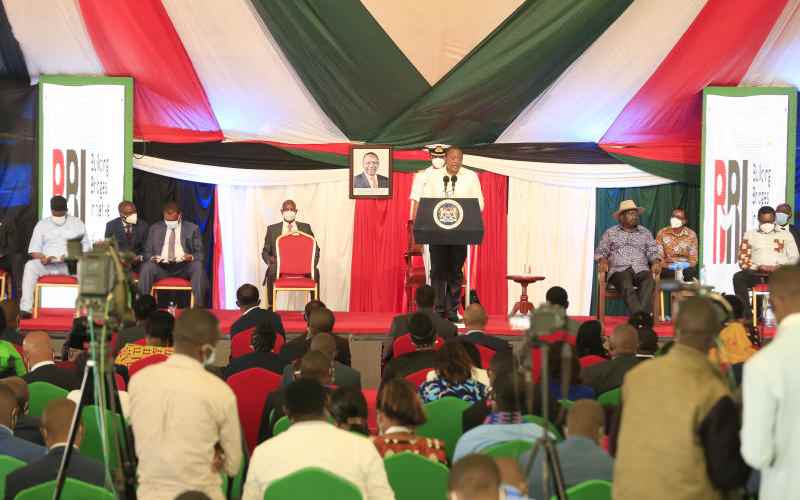×
The Standard e-Paper
Kenya’s Boldest Voice

President Uhuru Kenyatta makes his speech during the launch of the collection of signatures for the Building Bridges Initiative (BBI) at KICC in Nairobi on November 25, 2020. [Stafford Ondego, Standard]
Building Bridges Initiative has suffered an engine knock. They mixed oil and water in the engine, owing to hubris, ignorance and sycophancy.